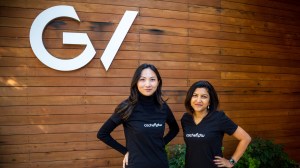Cacheflow, a startup building tools for the software sales closing process, announced this morning that it closed $10 million in new capital.
Cacheflow CEO and co-founder Sarika Garg told TechCrunch that the new capital doubled her company’s valuation, added prior lead investor Glenn Solomon (GGV) to its board and brought new investor Crystal Huang (GV) on as a board observer. Huang led Cacheflow’s newest investment — what Garg described as a seed+ round — for GV, while Solomon put in more capital to the round than his pro-rata rights guaranteed, she said.
The venture capital market has slowed, and valuations for startups of all maturities have come down. To see Cacheflow raise a year after it came out of stealth and announced a $6 million round caught our attention. How had the company managed a quick raise at an attractive price when so many startups that once found the feat easy are struggling to repeat it today?
Per Garg, her company became commercially available this April, after which point she started to get inbound notes from investors. The startup CEO said that venture investors are still willing to pay for “companies that have momentum or are solving a real problem.”
Easier said than done, yeah? In the case of Cacheflow, after accelerating its sales and marketing efforts a few months ago, it has grown to around a dozen customers, which Garg described as being Series A through C companies. The CEO also said that Cacheflow is talking to larger potential customers today, indicating that her company intends to make the standard pivot upmarket in the future.

If the market for software products is getting a bit steeper than before, and companies are expected to cut back on new tooling in particular during the present economic downturn, how is Cacheflow growing quickly enough to double its valuation in late 2022?
Garg said that she learned that potential customers think of Salesforce as a lead management tool for managers. The CRM giant doesn’t, she argued, map out the last-mile tasks of closing a software deal with a customer. This leads to sales executives — think the CROs of the world — tracking deals manually. Insert blizzard of email here.
Notably, concern regarding sales clarity and speed in the larger software market is helping Cacheflow, well, sell its own software, as its tool helps sales folks track deal closing progress and who’s reading what.
Recall that the original pitch for Cacheflow was that it made buying software simpler. Now, speaking with the company a few days ago, we noticed a greater emphasis on the selling experience versus the buying process. But both sides of the equation orbit around faster, clearer closing steps for the software buying process. As everyone who sells software wants that, especially during the present period of economic angst, you can see why Cacheflow might be able to buck a more conservative market.
(If you, like myself, aren’t super familiar with the use of CRM products in the sales process, don’t worry. The software flow for a startup using, say, Gong and Salesforce and Cacheflow would work something like this: Gong to record sales calls, Cacheflow to close deals, with both services integrating into Salesforce for records management, as I understand it.)
Cacheflow is 16 people today and is unsurprisingly hiring after raising more capital. Garg said that it’s a great time for startups to stack talent because the market is a bit less chaotic than it was during the go-go-go 2021 era. And, she said, there’s less noise in the market. If you are taking a software product to market today, your potential customers are being bombarded with fewer calls and ads, meaning that you might have a clearer run at their attention.
The Cacheflow round is interesting in that it’s a startup we’ve been watching, and seeing it quickly raise more capital at a sharply higher valuation is eye-catching in the present climate. But also because it appears that well-capitalized startups busy selling today are perhaps slogging through less of a miasma than we expected, provided, of course, that customers actually need what they are selling.































Comment